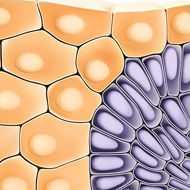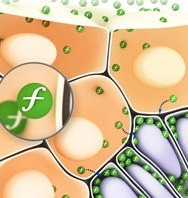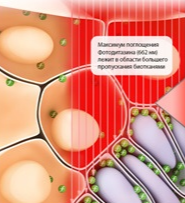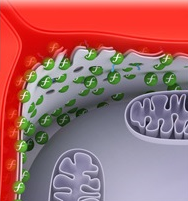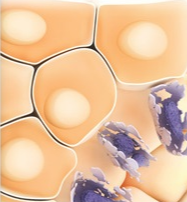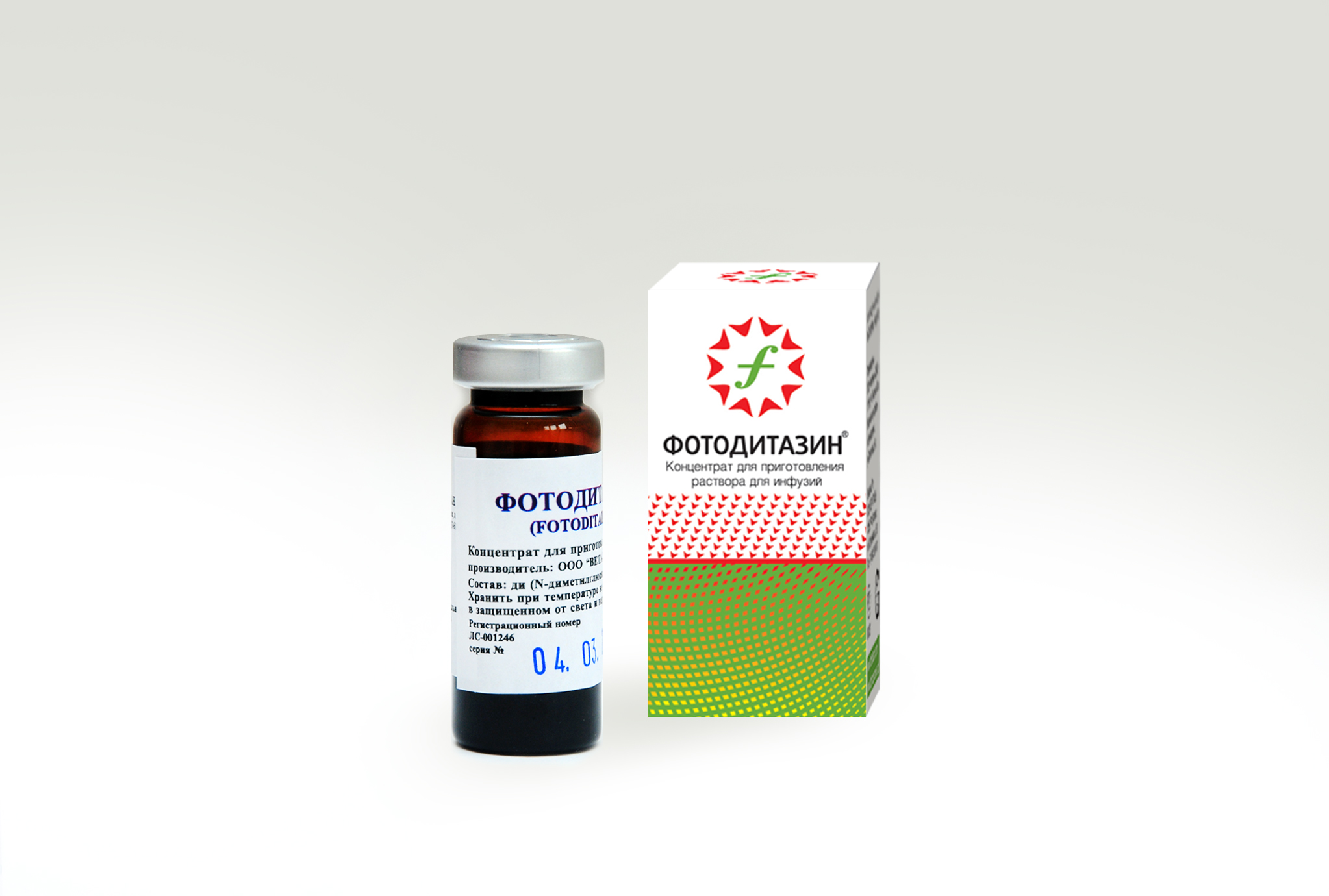
«Fotoditazin®» concentrate for preparation of infusions solution.
Pharmaterapeutic photosensitizer.
Pharmacological properties
Pharmacodynamics. Fotoditazin® is the photosensitizer of the second generation intended for fluorescent diagnostics (FD) and photodynamic therapy (PDT) of malignant tumours.
The preparation selectively accumulates in malignant neoplasms. At the subsequent irradiation of the tumoral center by monochromatic light of 661 - 662 nanometers wave length arises photosensitizing effect consisting in generation of active forms of oxygen in a tumoral tissue (singlet oxygen) and other free radical particles leading to the development of biochemical and structurally functional changes in cells of a tumour and their destruction. High photocytotoxicity of Fotoditazin® is characteristic for various kinds of tumoral cells. Fotoditazin is the high-quality diagnostic means within spectrofluorescent methods of research.
The specified features of the preparation practically exclude damaging action, at carrying out PDT, healthy bodies and tissues, and also integuments traumatizing by the light.
Pharmacokinetics. After intravenous induction of fotoditazin the maximal concentration in a tumour is reached in 1,5-2,5 hours from the moment of induction (depending on nosological type of a tumour). In 4-5 hours concentration of fotoditazin in a tumour gradually decreases. The period of preparation half-elimination - 12 hours. In 28 hours after intravenous induction, in blood are found out trace quantities of the preparation. The maximal factor of preparation accumulation contrast (a tumour/normal tissue) depends from nosological type of tumour and can vary from 3,0 up to 24.
Preparation actively metabolizing in a liver (over 95 %).
Connection with fibers of plasma makes 92-96 %.
Indications to application
Fluorescent diagnostics of skin cancer and cancer of lung. Photodynamic therapy of a skin cancer (planocellular, basal - cellular), cancer of lung (only in case of presence of contra-indications to operative treatment).
Contra-indications
The high sensitivity to the preparation.
Expressed renal or hepatic insufficiency.
Cardiovascular diseases in a decompensation phase.
Pregnancy and the lactation period.
Infancy.
Collateral action
Temperature rise (37-38 ºС) within 30 minutes, and pain in the zone of irradiation which are stoped by introduction of analgesics, antihistaminic means. Increase of patients arterial pressure accompanying diseases of cardiovascular system.
 Chn
Chn
 veta-grand@mail.ru
veta-grand@mail.ru  +7 499 250 40 00
+7 499 250 40 00 

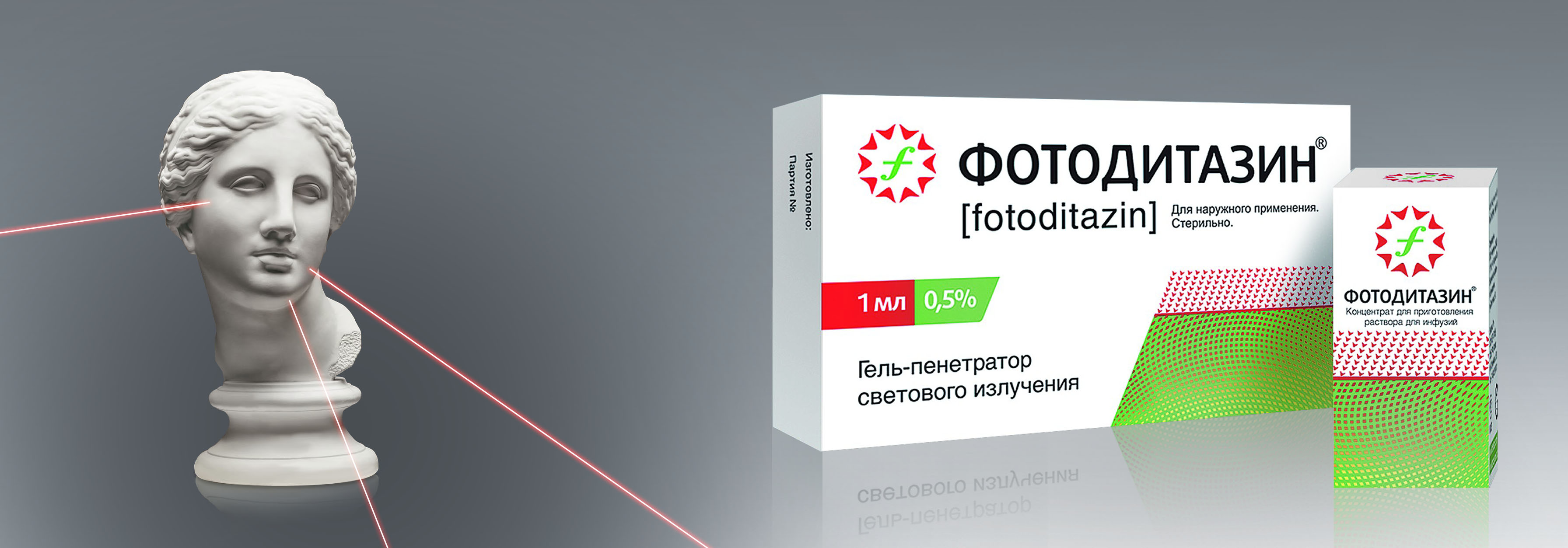
 Find us in VKontakte
Find us in VKontakte Find us in Odnoklassniki
Find us in Odnoklassniki Find us in Twitter
Find us in Twitter Find us in Telegram
Find us in Telegram Wikipedia
Wikipedia Presentation
Presentation